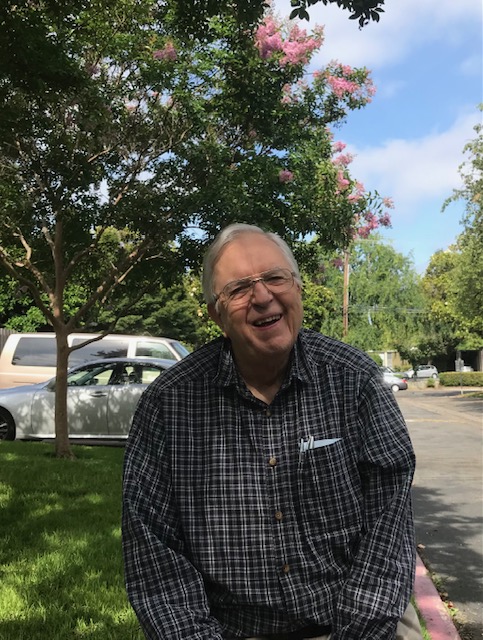

 Solomon The Man, the Son of David
Solomon The Man, the Son of DavidBorn: 1010 BC. King of Israel 971-931 B.C. The First Book of Samuel and the First Book of Chronicles both identify David as the son of Jesse, the youngest of eight sons. He also had at least two sisters, Zeruiah, whose sons all went on to serve in David's army, and Abigail, whose son Amasa went on to serve in Absalom's army, Absalom being one of David's younger sons. While the Bible does not name his mother, the Talmud identifies her as Nitzevet, a daughter of a man named Adael, and the Book of Ruth claims him as the great-grandson of Ruth, the Moabite, by Boaz.
David chose Solomon to succeed him on the throne. Solomon's nick name, Jedidiah, means "beloved of the Lord." while in office he built the First Jewish Temple.
But King Solomon loved many foreign women, as well as the daughter of Pharaoh: women of the Moabites, Ammonites, Edomites, Sidonians, and Hittites—from the nations of whom the Lord had said to the children of Israel, “You shall not intermarry with them, nor they with you. Surely they will turn away your hearts after their gods.” Solomon clung to these in love. And he had seven hundred wives, princesses, and three hundred concubines; and his wives turned away his heart. For it was so, when Solomon was old, that his wives turned his heart after other gods; and his heart was not loyal to the Lord his God, as was the heart of his father David. For Solomon went after Ashtoreth the goddess of the Sidonians, and after Milcom the abomination of the Ammonites. Solomon did evil in the sight of the Lord, and did not fully follow the Lord, as did his father David. Then Solomon built a high place for Chemosh the abomination of Moab, on the hill that is east of Jerusalem, and for Molech the abomination of the people of Ammon. And he did likewise for all his foreign wives, who burned incense and sacrificed to their gods.
So the Lord became angry with Solomon, because his heart had turned from the Lord God of Israel, who had appeared to him twice, and had commanded him concerning this thing, that he should not go after other gods; but he did not keep what the Lord had commanded. Therefore the Lord said to Solomon, “Because you have done this, and have not kept My covenant and My statutes, which I have commanded you, I will surely tear the kingdom away from you and give it to your servant. Nevertheless I will not do it in your days, for the sake of your father David; I will tear it out of the hand of your son. However I will not tear away the whole kingdom; I will give one tribe to your son for the sake of My servant David, and for the sake of Jerusalem which I have chosen.”
Now the Lord raised up an adversary against Solomon, Hadad the Edomite; he was a descendant of the king in Edom. For it happened, when David was in Edom, and Joab the commander of the army had gone up to bury the slain, after he had killed every male in Edom (because for six months Joab remained there with all Israel, until he had cut down every male in Edom), that Hadad fled to go to Egypt, he and certain Edomites of his father’s servants with him. Hadad was still a little child. Then they arose from Midian and came to Paran; and they took men with them from Paran and came to Egypt, to Pharaoh king of Egypt, who gave him a house, apportioned food for him, and gave him land. And Hadad found great favor in the sight of Pharaoh, so that he gave him as wife the sister of his own wife, that is, the sister of Queen Tahpenes. Then the sister of Tahpenes bore him Genubath his son, whom Tahpenes weaned in Pharaoh’s house. And Genubath was in Pharaoh’s household among the sons of Pharaoh. So when Hadad heard in Egypt that David rested with his fathers, and that Joab the commander of the army was dead, Hadad said to Pharaoh, “Let me depart, that I may go to my own country.” Then Pharaoh said to him, “But what have you lacked with me, that suddenly you seek to go to your own country?” So he answered, “Nothing, but do let me go anyway.” And God raised up another adversary against him, Rezon the son of Eliadah, who had fled from his lord, Hadadezer king of Zobah. So he gathered men to him and became captain over a band of raiders, when David killed those of Zobah. And they went to Damascus and dwelt there, and reigned in Damascus. He was an adversary of Israel all the days of Solomon (besides the trouble that Hadad caused); and he abhorred Israel, and reigned over Syria.
Then Solomon’s servant, Jeroboam the son of Nebat, an Ephraimite from Zereda, whose mother’s name was Zeruah, a widow, also rebelled against the king.
And this is what caused him to rebel against the king: Solomon had built the Millo and repaired the damages to the City of David his father. The man Jeroboam was a mighty man of valor; and Solomon, seeing that the young man was industrious, made him the officer over all the labor force of the house of Joseph.
Now it happened at that time, when Jeroboam went out of Jerusalem, that the prophet Ahijah the Shilonite met him on the way; and he had clothed himself with a new garment, and the two were alone in the field. Then Ahijah took hold of the new garment that was on him, and tore it into twelve pieces. And he said to Jeroboam, “Take for yourself ten pieces, for thus says the Lord, the God of Israel: ‘Behold, I will tear the kingdom out of the hand of Solomon and will give ten tribes to you (but he shall have one tribe for the sake of My servant David, and for the sake of Jerusalem, the city which I have chosen out of all the tribes of Israel), because they have forsaken Me, and worshiped Ashtoreth the goddess of the Sidonians, Chemosh the god of the Moabites, and Milcom the god of the people of Ammon, and have not walked in My ways to do what is right in My eyes and keep My statutes and My judgments, as did his father David. However I will not take the whole kingdom out of his hand, because I have made him ruler all the days of his life for the sake of My servant David, whom I chose because he kept My commandments and My statutes. But I will take the kingdom out of his son’s hand and give it to you—ten tribes. And to his son I will give one tribe, that My servant David may always have a lamp before Me in Jerusalem, the city which I have chosen for Myself, to put My name there. So I will take you, and you shall reign over all your heart desires, and you shall be king over Israel. Then it shall be, if you heed all that I command you, walk in My ways, and do what is right in My sight, to keep My statutes and My commandments, as My servant David did, then I will be with you and build for you an enduring house, as I built for David, and will give Israel to you. And I will afflict the descendants of David because of this, but not forever.’ ” Solomon therefore sought to kill Jeroboam. But Jeroboam arose and fled to Egypt, to Shishak king of Egypt, and was in Egypt until the death of Solomon....”
Now the rest of the acts of Solomon, all that he did, and his wisdom, are they not written in the book of the acts of Solomon? And the period that Solomon reigned in Jerusalem over all Israel was forty years. Then Solomon rested with his fathers, and was buried in the City of David his father. And Rehoboam his son reigned in his place.“ (1 Kings 11)
At the end of his life, Solomon seems to have returned to his original intimate relationship with Yeshua. Song of Solomon, Proverbs and Ecclesiastes appear to be products of his his later years. (For an overview of Kings and Chronicles, Ray Stedman How to Lose a Kingdom is excellent.)

The name "Solomon" is related to the Hebrew "shalom" meaning "peace." Shalom means the kind of peace that comes from being in harmony with God and with one's fellow man. Shalom implies wholeness. According to Second Samuel, Solomon's other name was "Jedidiah, "Beloved of Yahweh." (2 Samuel 12:24, 25).
Solomon's accession to the throne, his prayer to God for wisdom, his great wealth, his building of the temple, his prayer of dedication of the temple, and God's response, his renown, as well as his later falling away---are recorded in I Kings 1-11 and 2 Chronicles 1-9. We are given an instructive background on this, the wisest man in the ancient world,
At Gibeon the LORD appeared to Solomon in a dream by night; and God said, "Ask what I shall give you." And Solomon said, "Thou hast shown great and steadfast love to thy servant David my father, because he walked before thee in faithfulness, in righteousness, and in uprightness of heart toward thee; and thou hast kept for him this great and steadfast love, and hast given him a son to sit on his throne this day. And now, O LORD my God, thou hast made thy servant king in place of David my father, although I am but a little child; I do not know how to go out or come in. And thy servant is in the midst of thy people whom thou hast chosen, a great people, that cannot be numbered or counted for multitude. Give thy servant therefore an understanding mind to govern thy people, that I may discern between good and evil; for who is able to govern this thy great people?"
It pleased the Lord that Solomon had asked this. And God said to him, "Because you have asked this, and have not asked for yourself long life or riches or the life of your enemies, but have asked for yourself understanding to discern what is right, behold, I now do according to your word. Behold, I give you a wise and discerning mind, so that none like you has been before you and none like you shall arise after you. I give you also what you have not asked, both riches and honor, so that no other king shall compare with you, all your days. And if you will walk in my ways, keeping my statutes and my commandments, as your father David walked, then I will lengthen your days." And Solomon awoke, and behold, it was a dream. Then he came to Jerusalem, and stood before the ark of the covenant of the LORD, and offered up burnt offerings and peace offerings, and made a feast for all his servants. (I Kings 3:5-15)
...And God gave Solomon wisdom and understanding beyond measure, and largeness of mind like the sand on the seashore, so that Solomon's wisdom surpassed the wisdom of all the people of the east, and all the wisdom of Egypt. For he was wiser than all other men, wiser than Ethan the Ezrahite, and Heman, Calcol, and Darda, the sons of Mahol; and his fame was in all the nations round about. He also uttered three thousand proverbs; and his songs were a thousand and five. He spoke of trees, from the cedar that is in Lebanon to the hyssop that grows out of the wall; he spoke also of beasts, and of birds, and of reptiles, and of fish. And men came from all peoples to hear the wisdom of Solomon, and from all the kings of the earth, who had heard of his wisdom." (1 Kings 4:29-34)
Most commentators consider the Song of Solomon to have been written early in his life. Solomon's early godly years were followed by a decline and an extended time in his life when he was not walking with God. Later, towards the end of his life, He apparently returned to close fellowship with God. Ecclesiastes seems to have been written towards the end of Solomon's life to give testimony of the king's searchings for meaning in life. His conclusion is that life only makes sense when God is at the center of all we undertake. Ray C. Stedman's commentary on Ecclesiastes is especially recommended.
Of the 3000 proverbs attributed to him, we know of only a few dozen at most. The Book of Kings says that Solomon wrote 1005 songs. Only this one survives. One of the Targums of the Jews has an interesting word here:
When King Solomon was sitting upon the throne of his kingdom, his heart became greatly elated with riches, and he transgressed the commandment of the Word of God; and he gathered many houses, and chariots, and riders, and he amassed much gold and silver, and he married wives from foreign nations. Whereupon the anger of the Lord was kindled against him, and he sent to him Ashmodai, the king of the demons, and he drove him from the throne of his kingdom, and took away the ring from his hand, in order that he should roam and wander about in the world, to reprove it; and he went about the provincial towns and cities in the land of Israel, weeping and lamenting, and saying, "I am Coheleth, whose name was formerly called Solomon, who was King over Israel in Jerusalem."
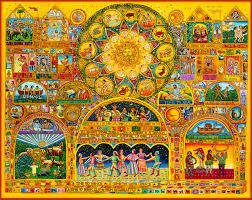
The Text |
| 1The words of the Teacher, the son of David, king in Jerusalem. 2 Vanity of vanities, says the Teacher, vanity of vanities! All is vanity. 3 What do people gain from all the toil at which they toil under the sun? 4 A generation goes, and a generation comes, but the earth remains forever. 5 The sun rises and the sun goes down, and hurries to the place where it rises. 6 The wind blows to the south, and goes around to the north; round and round goes the wind, and on its circuits the wind returns. 7 All streams run to the sea, but the sea is not full; to the place where the streams flow, there they continue to flow. 8 All things are wearisome; more than one can express; the eye is not satisfied with seeing, or the ear filled with hearing. 9 What has been is what will be, and what has been done is what will be done; there is nothing new under the sun. 10 Is there a thing of which it is said, “See, this is new”? It has already been, in the ages before us. 11 The people of long ago are not remembered, nor will there be any remembrance of people yet to come by those who come after them. 12 I, the Teacher, when king over Israel in Jerusalem, 13 applied my mind to seek and to search out by wisdom all that is done under heaven; it is an unhappy business that God has given to human beings to be busy with. 14 I saw all the deeds that are done under the sun; and see, all is vanity and a chasing after wind. 15 What is crooked cannot be made straight, and what is lacking cannot be counted. 16 I said to myself, “I have acquired great wisdom, surpassing all who were over Jerusalem before me; and my mind has had great experience of wisdom and knowledge.” 17 And I applied my mind to know wisdom and to know madness and folly. I perceived that this also is but a chasing after wind.18 For in much wisdom is much vexation, and those who increase knowledge increase sorrow. 2:1 I said to myself, “Come now, I will make a test of pleasure; enjoy yourself.” But again, this also was vanity. 2 I said of laughter, “It is mad,” and of pleasure, “What use is it?” 3 I searched with my mind how to cheer my body with wine—my mind still guiding me with wisdom—and how to lay hold on folly, until I might see what was good for mortals to do under heaven during the few days of their life. 4 I made great works; I built houses and planted vineyards for myself; 5 I made myself gardens and parks, and planted in them all kinds of fruit trees. 6 I made myself pools from which to water the forest of growing trees. 7 I bought male and female slaves, and had slaves who were born in my house; I also had great possessions of herds and flocks, more than any who had been before me in Jerusalem. 8 I also gathered for myself silver and gold and the treasure of kings and of the provinces; I got singers, both men and women, and delights of the flesh, and many concubines. 9So I became great and surpassed all who were before me in Jerusalem; also my wisdom remained with me. 10 Whatever my eyes desired I did not keep from them; I kept my heart from no pleasure, for my heart found pleasure in all my toil, and this was my reward for all my toil. 11 Then I considered all that my hands had done and the toil I had spent in doing it, and again, all was vanity and a chasing after wind, and there was nothing to be gained under the sun. 12 So I turned to consider wisdom and madness and folly; for what can the one do who comes after the king? Only what has already been done.13 Then I saw that wisdom excels folly as light excels darkness. 14 The wise have eyes in their head, but fools walk in darkness. Yet I perceived that the same fate befalls all of them. 15 Then I said to myself, “What happens to the fool will happen to me also; why then have I been so very wise?” And I said to myself that this also is vanity. 16 For there is no enduring remembrance of the wise or of fools, seeing that in the days to come all will have been long forgotten. How can the wise die just like fools? 17 So I hated life, because what is done under the sun was grievous to me; for all is vanity and a chasing after wind. 18 I hated all my toil in which I had toiled under the sun, seeing that I must leave it to those who come after me 19—and who knows whether they will be wise or foolish? Yet they will be master of all for which I toiled and used my wisdom under the sun. This also is vanity. 20 So I turned and gave my heart up to despair concerning all the toil of my labors under the sun, 21 because sometimes one who has toiled with wisdom and knowledge and skill must leave all to be enjoyed by another who did not toil for it. This also is vanity and a great evil. 22 What do mortals get from all the toil and strain with which they toil under the sun? 23 For all their days are full of pain, and their work is a vexation; even at night their minds do not rest. This also is vanity. 24 There is nothing better for mortals than to eat and drink, and find enjoyment in their toil. This also, I saw, is from the hand of God; 25 for apart from him who can eat or who can have enjoyment? 26 For to the one who pleases him God gives wisdom and knowledge and joy; but to the sinner he gives the work of gathering and heaping, only to give to one who pleases God. This also is vanity and a chasing after wind. 3:1 For everything there is a season, and a time for every matter under heaven: 2 a time to be born, and a time to die; a time to plant, and a time to pluck up what is planted; 3 a time to kill, and a time to heal; a time to break down, and a time to build up; 4 a time to weep, and a time to laugh; a time to mourn, and a time to dance; 5a time to throw away stones, and a time to gather stones together; a time to embrace, and a time to refrain from embracing; 6 a time to seek, and a time to lose; a time to keep, and a time to throw away; 7 a time to tear, and a time to sew; a time to keep silence, and a time to speak; 8 a time to love, and a time to hate; a time for war, and a time for peace. 9 What gain have the workers from their toil? 10 I have seen the business that God has given to everyone to be busy with. 11 He has made everything suitable for its time; moreover he has put a sense of past and future into their minds, yet they cannot find out what God has done from the beginning to the end. 12 I know that there is nothing better for them than to be happy and enjoy themselves as long as they live; 13 moreover, it is God’s gift that all should eat and drink and take pleasure in all their toil. 14 I know that whatever God does endures forever; nothing can be added to it, nor anything taken from it; God has done this, so that all should stand in awe before him. 15 That which is, already has been; that which is to be, already is; and God seeks out what has gone by. 16 Moreover I saw under the sun that in the place of justice, wickedness was there, and in the place of righteousness, wickedness was there as well. 17 I said in my heart, God will judge the righteous and the wicked, for he has appointed a time for every matter, and for every work. 18 I said in my heart with regard to human beings that God is testing them to show that they are but animals. 19For the fate of humans and the fate of animals is the same; as one dies, so dies the other. They all have the same breath, and humans have no advantage over the animals; for all is vanity. 20 All go to one place; all are from the dust, and all turn to dust again. 21 Who knows whether the human spirit goes upward and the spirit of animals goes downward to the earth? 22 So I saw that there is nothing better than that all should enjoy their work, for that is their lot; who can bring them to see what will be after them? 4:1 Again I saw all the oppressions that are practiced under the sun. Look, the tears of the oppressed—with no one to comfort them! On the side of their oppressors there was power—with no one to comfort them. 2 And I thought the dead, who have already died, more fortunate than the living, who are still alive; 3 but better than both is the one who has not yet been, and has not seen the evil deeds that are done under the sun. 4 Then I saw that all toil and all skill in work come from one person’s envy of another. This also is vanity and a chasing after wind. 5 Fools fold their hands and consume their own flesh. 6Better is a handful with quiet than two handfuls with toil, and a chasing after wind. 7 Again, I saw vanity under the sun: 8the case of solitary individuals, without sons or brothers; yet there is no end to all their toil, and their eyes are never satisfied with riches. “For whom am I toiling,” they ask, “and depriving myself of pleasure?” This also is vanity and an unhappy business. 9 Two are better than one, because they have a good reward for their toil. 10 For if they fall, one will lift up the other; but woe to one who is alone and falls and does not have another to help. 11 Again, if two lie together, they keep warm; but how can one keep warm alone? 12 And though one might prevail against another, two will withstand one. A threefold cord is not quickly broken. 13 Better is a poor but wise youth than an old but foolish king, who will no longer take advice. 14 One can indeed come out of prison to reign, even though born poor in the kingdom. 15 I saw all the living who, moving about under the sun, follow that youth who replaced the king; 16 there was no end to all those people whom he led. Yet those who come later will not rejoice in him. Surely this also is vanity and a chasing after wind. 5:1 Guard your steps when you go to the house of God; to draw near to listen is better than the sacrifice offered by fools; for they do not know how to keep from doing evil. 2 Never be rash with your mouth, nor let your heart be quick to utter a word before God, for God is in heaven, and you upon earth; therefore let your words be few. 3For dreams come with many cares, and a fool’s voice with many words. 4 When you make a vow to God, do not delay fulfilling it; for he has no pleasure in fools. Fulfill what you vow. 5 It is better that you should not vow than that you should vow and not fulfill it. 6 Do not let your mouth lead you into sin, and do not say before the messenger that it was a mistake; why should God be angry at your words, and destroy the work of your hands? 7 With many dreams come vanities and a multitude of words; but fear God. 8 If you see in a province the oppression of the poor and the violation of justice and right, do not be amazed at the matter; for the high official is watched by a higher, and there are yet higher ones over them. 9 But all things considered, this is an advantage for a land: a king for a plowed field. 10 The lover of money will not be satisfied with money; nor the lover of wealth, with gain. This also is vanity. 11 When goods increase, those who eat them increase; and what gain has their owner but to see them with his eyes? 12 Sweet is the sleep of laborers, whether they eat little or much; but the surfeit of the rich will not let them sleep. 13 There is a grievous ill that I have seen under the sun: riches were kept by their owners to their hurt, 14and those riches were lost in a bad venture; though they are parents of children, they have nothing in their hands.15 As they came from their mother’s womb, so they shall go again, naked as they came; they shall take nothing for their toil, which they may carry away with their hands. 16 This also is a grievous ill: just as they came, so shall they go; and what gain do they have from toiling for the wind?17 Besides, all their days they eat in darkness, in much vexation and sickness and resentment. 18 This is what I have seen to be good: it is fitting to eat and drink and find enjoyment in all the toil with which one toils under the sun the few days of the life God gives us; for this is our lot. 19 Likewise all to whom God gives wealth and possessions and whom he enables to enjoy them, and to accept their lot and find enjoyment in their toil—this is the gift of God. 20 For they will scarcely brood over the days of their lives, because God keeps them occupied with the joy of their hearts. 6:1 There is an evil that I have seen under the sun, and it lies heavy upon humankind: 2 those to whom God gives wealth, possessions, and honor, so that they lack nothing of all that they desire, yet God does not enable them to enjoy these things, but a stranger enjoys them. This is vanity; it is a grievous ill. 3 A man may beget a hundred children, and live many years; but however many are the days of his years, if he does not enjoy life’s good things, or has no burial, I say that a stillborn child is better off than he. 4 For it comes into vanity and goes into darkness, and in darkness its name is covered; 5 moreover it has not seen the sun or known anything; yet it finds rest rather than he. 6 Even though he should live a thousand years twice over, yet enjoy no good—do not all go to one place? 7All human toil is for the mouth, yet the appetite is not satisfied. 8 For what advantage have the wise over fools? And what do the poor have who know how to conduct themselves before the living? 9 Better is the sight of the eyes than the wandering of desire; this also is vanity and a chasing after wind. 10 Whatever has come to be has already been named, and it is known what human beings are, and that they are not able to dispute with those who are stronger. 11 The more words, the more vanity, so how is one the better? For who knows what is good for mortals while they live the few days of their vain life, which they pass like a shadow? 12 For who can tell them what will be after them under the sun? 5:1 A good name is better than precious ointment, and the day of death, than the day of birth. 2 It is better to go to the house of mourning than to go to the house of feasting; for this is the end of everyone, and the living will lay it to heart. 3 Sorrow is better than laughter, for by sadness of countenance the heart is made glad. 4 The heart of the wise is in the house of mourning; but the heart of fools is in the house of mirth. 5 It is better to hear the rebuke of the wise than to hear the song of fools. 6 For like the crackling of thorns under a pot, so is the laughter of fools; this also is vanity. 7 Surely oppression makes the wise foolish, and a bribe corrupts the heart. 8 Better is the end of a thing than its beginning; the patient in spirit are better than the proud in spirit. 9 Do not be quick to anger, for anger lodges in the bosom of fools. 10 Do not say, “Why were the former days better than these?” For it is not from wisdom that you ask this. 11 Wisdom is as good as an inheritance, an advantage to those who see the sun. 12 For the protection of wisdom is like the protection of money, and the advantage of knowledge is that wisdom gives life to the one who possesses it. 13 Consider the work of God; who can make straight what he has made crooked? 14 In the day of prosperity be joyful, and in the day of adversity consider; God has made the one as well as the other, so that mortals may not find out anything that will come after them. 15 In my vain life I have seen everything; there are righteous people who perish in their righteousness, and there are wicked people who prolong their life in their evil-doing. 16 Do not be too righteous, and do not act too wise; why should you destroy yourself? 17 Do not be too wicked, and do not be a fool; why should you die before your time? 18 It is good that you should take hold of the one, without letting go of the other; for the one who fears God shall succeed with both. 19 Wisdom gives strength to the wise more than ten rulers that are in a city. 20 Surely there is no one on earth so righteous as to do good without ever sinning. 21 Do not give heed to everything that people say, or you may hear your servant cursing you; 22 your heart knows that many times you have yourself cursed others. 23 All this I have tested by wisdom; I said, “I will be wise,” but it was far from me. 24 That which is, is far off, and deep, very deep; who can find it out? 25 I turned my mind to know and to search out and to seek wisdom and the sum of things, and to know that wickedness is folly and that foolishness is madness. 26 I found more bitter than death the woman who is a trap, whose heart is snares and nets, whose hands are fetters; one who pleases God escapes her, but the sinner is taken by her. 27 See, this is what I found, says the Teacher, adding one thing to another to find the sum, 28 which my mind has sought repeatedly, but I have not found. One man among a thousand I found, but a woman among all these I have not found. 29 See, this alone I found, that God made human beings straightforward, but they have devised many schemes. 8:1 Who is like the wise man? And who knows the interpretation of a thing? Wisdom makes one’s face shine, and the hardness of one’s countenance is changed. 2 Keep the king’s command because of your sacred oath. Do not be terrified; 3 go from his presence, do not delay when the matter is unpleasant, for he does whatever he pleases. 4 For the word of the king is powerful, and who can say to him, “What are you doing?” 5 Whoever obeys a command will meet no harm, and the wise mind will know the time and way. 6 For every matter has its time and way, although the troubles of mortals lie heavy upon them.7 Indeed, they do not know what is to be, for who can tell them how it will be? 8 No one has power over the wind to restrain the wind, or power over the day of death; there is no discharge from the battle, nor does wickedness deliver those who practice it. 9 All this I observed, applying my mind to all that is done under the sun, while one person exercises authority over another to the other’s hurt. 10 Then I saw the wicked buried; they used to go in and out of the holy place, and were praised in the city where they had done such things. This also is vanity. 11 Because sentence against an evil deed is not executed speedily, the human heart is fully set to do evil. 12 Though sinners do evil a hundred times and prolong their lives, yet I know that it will be well with those who fear God, because they stand in fear before him, 13 but it will not be well with the wicked, neither will they prolong their days like a shadow, because they do not stand in fear before God. 14 There is a vanity that takes place on earth, that there are righteous people who are treated according to the conduct of the wicked, and there are wicked people who are treated according to the conduct of the righteous. 15 I said that this also is vanity. So I commend enjoyment, for there is nothing better for people under the sun than to eat, and drink, and enjoy themselves, for this will go with them in their toil through the days of life that God gives them under the sun. 16 When I applied my mind to know wisdom, and to see the business that is done on earth, how one’s eyes see sleep neither day nor night, 17 then I saw all the work of God, that no one can find out what is happening under the sun. However much they may toil in seeking, they will not find it out; even though those who are wise claim to know, they cannot find it out. 9:1 All this I laid to heart, examining it all, how the righteous and the wise and their deeds are in the hand of God; whether it is love or hate one does not know. Everything that confronts them is vanity, 2 since the same fate comes to all, to the righteous and the wicked, to the good and the evil, to the clean and the unclean, to those who sacrifice and those who do not sacrifice. As are the good, so are the sinners; those who swear are like those who shun an oath. 3 This is an evil in all that happens under the sun, that the same fate comes to everyone. Moreover, the hearts of all are full of evil; madness is in their hearts while they live, and after that they go to the dead. 4 But whoever is joined with all the living has hope, for a living dog is better than a dead lion. 5 The living know that they will die, but the dead know nothing; they have no more reward, and even the memory of them is lost. 6 Their love and their hate and their envy have already perished; never again will they have any share in all that happens under the sun. 7 Go, eat your bread with enjoyment, and drink your wine with a merry heart; for God has long ago approved what you do. 8 Let your garments always be white; do not let oil be lacking on your head. 9 Enjoy life with the wife whom you love, all the days of your vain life that are given you under the sun, because that is your portion in life and in your toil at which you toil under the sun. 10 Whatever your hand finds to do, do with your might; for there is no work or thought or knowledge or wisdom in Sheol, to which you are going. 11 Again I saw that under the sun the race is not to the swift, nor the battle to the strong, nor bread to the wise, nor riches to the intelligent, nor favor to the skillful; but time and chance happen to them all. 12 For no one can anticipate the time of disaster. Like fish taken in a cruel net, and like birds caught in a snare, so mortals are snared at a time of calamity, when it suddenly falls upon them. 13 I have also seen this example of wisdom under the sun, and it seemed great to me. 14 There was a little city with few people in it. 15 A great king came against it and besieged it, building great siege-works against it. 14 Now there was found in it a poor wise man, and he by his wisdom delivered the city. Yet no one remembered that poor man. 16 So I said, “Wisdom is better than might; yet the poor man’s wisdom is despised, and his words are not heeded.” 17 The quiet words of the wise are more to be heeded than the shouting of a ruler among fools. Wisdom is better than weapons of war, but one bungler destroys much good. 10:1 Dead flies make the perfumer’s ointment give off a foul odor; so a little folly outweighs wisdom and honor. 2 The heart of the wise inclines to the right, but the heart of a fool to the left. 3 Even when fools walk on the road, they lack sense, and show to everyone that they are fools. 4 If the anger of the ruler rises against you, do not leave your post, for calmness will undo great offenses. 5 There is an evil that I have seen under the sun, as great an error as if it proceeded from the ruler: folly is set in many high places, and the rich sit in a low place. 7 I have seen slaves on horseback, and princes walking on foot like slaves. 8 Whoever digs a pit will fall into it; and whoever breaks through a wall will be bitten by a snake. 9 Whoever quarries stones will be hurt by them; and whoever splits logs will be endangered by them. 10 If the iron is blunt, and one does not whet the edge, then more strength must be exerted; but wisdom helps one to succeed. 11 If the snake bites before it is charmed, there is no advantage in a charmer. 12 Words spoken by the wise bring them favor, but the lips of fools consume them. 13 The words of their mouths begin in foolishness, and their talk ends in wicked madness; yet fools talk on and on. 14 No one knows what is to happen, and who can tell anyone what the future holds? 15 The toil of fools wears them out, for they do not even know the way to town. 16 Alas for you, O land, when your king is a servant, and your princes feast in the morning!17 Happy are you, O land, when your king is a nobleman, and your princes feast at the proper time— for strength, and not for drunkenness! 18 Through sloth the roof sinks in, and through indolence the house leaks. 19 Feasts are made for laughter; wine gladdens life, and money meets every need. 20 Do not curse the king, even in your thoughts, or curse the rich, even in your bedroom; for a bird of the air may carry your voice, or some winged creature tell the matter. 11:1 Send out your bread upon the waters, for after many days you will get it back. 2 Divide your means seven ways, or even eight, for you do not know what disaster may happen on earth. 3 When clouds are full, they empty rain on the earth; whether a tree falls to the south or to the north, in the place where the tree falls, there it will lie. 4 Whoever observes the wind will not sow; and whoever regards the clouds will not reap. 5 Just as you do not know how the breath comes to the bones in the mother’s womb, so you do not know the work of God, who makes everything. 6 In the morning sow your seed, and at evening do not let your hands be idle; for you do not know which will prosper, this or that, or whether both alike will be good. 7 Light is sweet, and it is pleasant for the eyes to see the sun. 8 Even those who live many years should rejoice in them all; yet let them remember that the days of darkness will be many. All that comes is vanity. 9 Rejoice, young man, while you are young, and let your heart cheer you in the days of your youth. Follow the inclination of your heart and the desire of your eyes, but know that for all these things God will bring you into judgment. 10 Banish anxiety from your mind, and put away pain from your body; for youth and the dawn of life are vanity. 12:1 Remember your creator in the days of your youth, before the days of trouble come, 2 and the years draw near when you will say, “I have no pleasure in them”; 3 before the sun and the light and the moon and the stars are darkened and the clouds return with the rain; in the day when the guards of the house tremble, and the strong men are bent, and the women who grind cease working because they are few, and those who look through the windows see dimly; 4 when the doors on the street are shut, and the sound of the grinding is low, and one rises up at the sound of a bird, and all the daughters of song are brought low; 5 when one is afraid of heights, and terrors are in the road; the almond tree blossoms, the grasshopper drags itself along and desire fails; because all must go to their eternal home, and the mourners will go about the streets; 6 before the silver cord is snapped, and the golden bowl is broken, and the pitcher is broken at the fountain, and the wheel broken at the cistern, 7 and the dust returns to the earth as it was, and the breath returns to God who gave it. 8 Vanity of vanities, says the Teacher; all is vanity. 9 Besides being wise, the Teacher also taught the people knowledge, weighing and studying and arranging many proverbs. 10 The Teacher sought to find pleasing words, and he wrote words of truth plainly. 11 The sayings of the wise are like goads, and like nails firmly fixed are the collected sayings that are given by one shepherd. 12 Of anything beyond these, my child, beware. Of making many books there is no end, and much study is a weariness of the flesh. 13 The end of the matter; all has been heard. Fear God, and keep his commandments; for that is the whole duty of everyone. 14 For God will bring every deed into judgment, including every secret thing, whether good or evil. New Revised Standard Version Bible, copyright © 1989 National Council of the Churches of Christ in the United States of America. Used by permission. All rights reserved worldwide. |
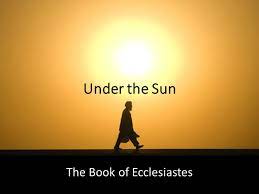
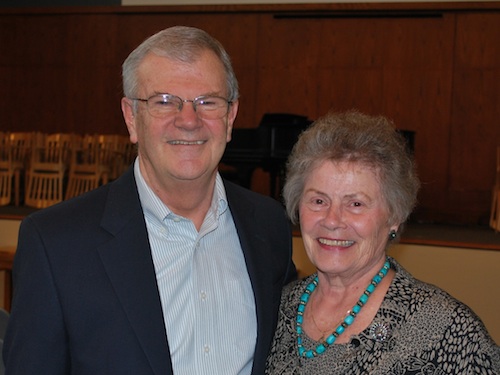 Tom Constable's commentaries are always excellent. Here is a short snippet so you'll read the rest: "Job and Ecclesiastes are quite similar. Qohelet's speech does not always express what is in harmony with the rest of the Old Testament, as the speeches of Job and his friends do not. It provides a foil for the second wise man, the narrator, who uses Qohelet's observations to instruct his son concerning the dangers of skepticism and doubting. This book helps the reader develop a God-centered world-view and recognize the dangers of a self-centered world-view. It does not describe the life of faith or teach what the responsibilities of faith in God are. It also prescribes the limits of human philosophy (cf. 3:11; 8:16-17). The book teaches that people are accountable to God, and that they should avoid self-indulgence, which leads to the exploitation of others for selfish gain.
Tom Constable's commentaries are always excellent. Here is a short snippet so you'll read the rest: "Job and Ecclesiastes are quite similar. Qohelet's speech does not always express what is in harmony with the rest of the Old Testament, as the speeches of Job and his friends do not. It provides a foil for the second wise man, the narrator, who uses Qohelet's observations to instruct his son concerning the dangers of skepticism and doubting. This book helps the reader develop a God-centered world-view and recognize the dangers of a self-centered world-view. It does not describe the life of faith or teach what the responsibilities of faith in God are. It also prescribes the limits of human philosophy (cf. 3:11; 8:16-17). The book teaches that people are accountable to God, and that they should avoid self-indulgence, which leads to the exploitation of others for selfish gain.
"In an age when life often appears chaotic and meaningless, Koheleth has a special message for us, being dedicated to teaching men to love life, accept its limitations, and rejoice in its blessings."
Christians may ask how the stress on using and enjoying life tallies with the NT command 'Do not love the world' (1 John 2:15). The answer is that the Teacher (Ecclesiastes) would have agreed fully with John's next statement that 'everything in the world—the cravings of sinful man, the lust of his eyes and the boasting of what he has and does—comes not from the Father but from the world. The world and its desires pass away' (vv. 16-17). One could hardly find a better statement than this of the whole theme of Ecclesiastes (e.g., 2:1-11; 5:10). Life in the world has significance only when man remembers his Creator (12:1).
"There always have been two kinds of teaching about the way to holiness. One is by withdrawal as far as possible from the natural in order to promote the spiritual. The other is to use and transform the natural into the expression of the spiritual. While each kind of teaching has its place, some people need one emphasis rather than the other. Ecclesiastes definitely teaches the second."
...This is a book of Hebrew poetry, specifically, wisdom literature designed to teach the reader. It is also autobiographical, relating the personal experiences of the writer.3 Thus it is a combination of poetry and prose. The writer also included some proverbs in Ecclesiastes. It is more similar to Job and Song of Solomon, however, than it is to Psalms, Proverbs, and Lamentations.4 There were two types of wisdom literature that were common in the ancient Near East: proverbial wisdom, and speculative wisdom. Ecclesiastes is an example of speculative wisdom. In speculative wisdom, dialogues (as in Job) and monologues (as in Ecclesiastes) disclose wisdom to the readers...
"Under the sun," used 29 times in Ecclesiastes and nowhere else in the Old Testament, simply means "on the earth," that is, in terms of human existence (1:9, 14; 2:11, 17, 18, 19, 20, 22; 3:16; 4:1, 3, 7, 15; 5:13, 18; 6:1, 5, 12; 8:9, 15, 17; 9:3, 6, 9, 11, 13; 10:5; cf. 1:13; 2:3; 3:1). The phrase shows that the writer's perspective was universal, not limited to his own people and land.2 And it shows that Solomon was looking at life from the perspective of man on the earth without the aid of special revelation from God.
Work produces nothing ultimate or permanently satisfying, only what is ephemeral. No person is permanent on the earth. The earth remains, but people die and the next generation replaces them. The point is that since man is not permanent, it is obvious that his work cannot be, either. While a person's work may outlive him or her (e.g., a skyscraper usually outlasts its builder), it will only last a little longer than he or she does. It, too, is only relatively permanent, not permanent as the earth is...
History does not answer the questions of ultimate meaning or purpose. These only come from divine revelation. Science does not answer these questions either. People's work is similar to the aspects of nature cited in these verses. In nature there are many things that recur in a cyclical pattern. They are never complete. For example, we never have a rainstorm that makes it unnecessary to have any more rainstorms (cf. Job 36:27-28). Our work is never complete in the sense that we never finally arrive at a condition in which no more work is necessary. There is always the need to do more work. Any homeowner can testify to this!
"The only constant thing about the wind is its changing."
One writer argued that the preacher did not intend verses 5-7 to show the futility of the phenomena he recorded. He intended to show only "... the limitations imposed on them by their allotted natures and functions, which necessitates their constant cyclical repetition." These limitations reflect futility.
"[David] Hume's brand of empiricism (that certain knowledge can be gained only through experience) is undermined here"
By saying, "there is nothing new under the sun", Solomon was not overlooking inventions and technological advances that have resulted in civilization's advancement through the centuries. Nevertheless, these have been only innovations, not basic changes. Man still struggles with the same essential problems he has always had. This is the round of work that is weariness to people, similar to the repetitious rounds observable in nature (vv. 5-7).
"Many people watch television for hours day after day. Why? Because the eye is never satisfied with seeing; the ear is never filled with hearing."
There appears to be a significant advance (e.g., social evolution), but that is only because people evaluate history superficially.
"The environment may change, and there may be new gadgets around, but there really is nothing new under the sun. Man stays the same. Only the stage setting may vary a bit from age to age."
"Things are ... occasionally referred to as being new because we do not remember how they appeared earlier in history."
"That man never finds satisfaction in earthly things, but on the contrary is ever asking for yet more and more, is a sign of their emptiness. Such being their nature they can never fill the heart."
We dream of futuristic utopias because we fail to see that man has made no real progress. Future generations will make the same mistake. Technology changes, but human nature and human activity remain the same.
What about the doctrine of eternal rewards? The New Testament teaches that what a person does in this life, for good and for evil, affects his or her eternal state (Matthew 7:24- 27; 1 Corinthians 6:9-10; et al.). Is there not eternal "net profit" for believers who do good works? Solomon had an unusually broad
The patriarchs also had some revelation of life after death (cf. Genesis 1:27; 25:8, 17; 35:29; Psalm 16; 73; et al.).1 However, Solomon evidenced no knowledge of revelation that deals with the effect a person's work has on his or her eternal condition (cf. Job). In this respect, his perspective was not as broad as those of us who benefit from New Testament revelation. Solomon was correct within his frame of reference. New Testament revelation has not invalidated Solomon's assessment of life from his perspective.
"Koheleth knew no such scenario as Jesus gave us in the parable of talents. The old sage had no real inkling of the ultimate judgment that offered, 'well done, good and faithful servant. ... Enter into the joy of your Lord,' and 'You wicked and lazy servant,' your destiny is 'outer darkness' with 'weeping and gnashing of teeth' (Matt. 25:21, 26, 30)."
Whether or not Solomon had insight into life beyond the grave, in this book he chose to limit his observations to life this side of the grave, "under the sun."
A factor that makes our work of lasting value is God's enablement with His grace by His Spirit. Reference to either of these supernatural resources is totally absent in Ecclesiastes. This omission further highlights the fact that Solomon's viewpoint was that of earthly life without supernatural intervention.
The fact that the name "Yahweh" does not occur in the book also clarifies the writer's perspective. The name "Elohim," however, appears about 37 times. Yahweh was the name God used to describe Himself in His relationships to people. The man "under the sun" in Ecclesiastes is one unaided by a personal relationship with God, not that he was necessarily unsaved. The man in view is every man, including the Israelites. Solomon's analysis simply omitted God's enablement in the human condition. He did assume man's belief in God, however, since it is a perversion of what is self-evident to deny God's existence (Psalm 14:1)...Solomon was saying that there is no type of effort or activity that can produce something ultimately permanent and therefore satisfying. There is nothing people can do that will yield this, no type of work or activity. He says that all human endeavor lacks permanent value—by citing evidence that he had observed personally, and then evidence that everyone has observed...
The Book of Ecclesiastes contains an argument that is very difficult to unfold because the ideas that connect succeeding portions of the text are not always easy to discover. This has led many a commentator to despair, as the following quotation illustrates.
"A connected and orderly argument, an elaborate arrangement of parts, is as little to be looked for here as in the special portion of the Book of Proverbs which begins with chapter X., or as in the alphabetical Psalms."
One of the keys to staying with Solomon in his reasoning is to understand the perspective from which he spoke. Phrases such as "under the sun" and "advantage," plus remembering how much special revelation Solomon enjoyed, are absolutely crucial to understanding what he was and was not saying. The recurrence of other key phrases such as "vanity and striving after wind," "vanity of vanities," "does not know," "cannot discover," and "you do not know" also help us. They note the movements of his thought from one section and emphasis to another. The accurate understanding of key terms such as "vanity," "wise," "foolish," "prosperity," "adversity," "righteous," and "wicked" also clarify Solomon's thought.
"Qoheleth's intent in his writing is to pass judgment on man's misguided endeavors at mastering life by pointing out its limits and mysteries. He would prefer that man replace such false and illusory hopes with a confidence based on the joy of creation as God's gift."2
What Solomon observed about life is still as true today as it was when he lived. Neither the progress of revelation nor the progress of civilization has proved the preacher's inspired book false or his advice bad.
This book needs more popular exposition than it has received, because it exposes the error of contemporary man's ways so effectively. Bible teachers and preachers have neglected it because it is difficult to understand and expound. Nevertheless most people in our day live in a superficial world of unreality that Ecclesiastes cuts right through. Part of our difficulty in understanding the book is that we, too, think this way and assume Solomon was speaking on this level. However, he was dealing with the more fundamental issues of human existence that not many people think or talk about today.
"Strange as the remark may seem to some, we do not hesitate to say that if there is one book more than another in the Old Testament which we would like to send for special consideration to millions of our fellow-countrymen today, it is Ecclesiastes. And though it may sound still stranger, if there is one Old Testament book more and another which many Christians of today need to read and pray over, it." Thomas Constable Commentary
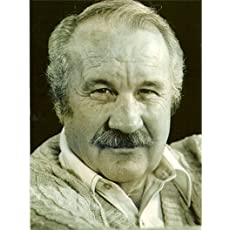 In revisiting Ecclesiastes this week I first listened to David Suchet's audio reading of Ecclesiastes. (36 minutes). Next I put on headphones and listened to 12 audio messages by my mentor, Ray Stedman. (Many fine points and subtleties will be missed if you merely skim the printed files.) It was nine hours of easy listening--like a good day at the office. I thought about my mostly-wasted life and my soon demise. The nine hours was divided by a break for recharging my headphone batteries but my entire world view (weltanshauung) just got a major update.
In revisiting Ecclesiastes this week I first listened to David Suchet's audio reading of Ecclesiastes. (36 minutes). Next I put on headphones and listened to 12 audio messages by my mentor, Ray Stedman. (Many fine points and subtleties will be missed if you merely skim the printed files.) It was nine hours of easy listening--like a good day at the office. I thought about my mostly-wasted life and my soon demise. The nine hours was divided by a break for recharging my headphone batteries but my entire world view (weltanshauung) just got a major update.
These sermons are 40 years old and times have changed somewhat. But Solomon, three thousand years ago, encountered eternal archetypal realities. "There is nothing new under the sun." What I can say is that this great book resonances with my soul. I have suggested how this book spoke to me as if I had been granted an audience with this king. (remember The visit of the Queen of Sheba). Ray was a great friend of mine for nearly thirty years. His wife Elaine is a model of godliness supreme. Do visit her library.
At the top of this page I have added the entire text of the book of Ecclesiastes. I find almost everyone I know is Biblically illiterate. Many professing Christians I know can quote only a few verses from the New Testament. I have also talking about what Ecclesiastes says to me. The Christian life can't be lived by proxy. Role models and mentors are important. We are need life's disciplines if we are to grow up and graduate with laurels. Ray lived by the discipline of studying 20 hours in order to do good job preaching on Sunday for 45 minutes.
Go, eat your bread with enjoyment, and drink your wine with a merry heart; for God has already approved what you do. Let your garments be always white; let not oil be lacking on your head. Enjoy life with the wife whom you love, all the days of your vain life which he has given you under the sun, because that is your portion in life and in your toil at which you toil under the sun. Whatever your hand finds to do, do it with your might; for there is no work or thought or knowledge or wisdom in Sheol, to which you are going. (Ecclesiastes 9:7-10 RSV)
"Sheol" means "the grave." It does not, in this reference at least, mean "hell." It means "the grave," the end of life.
Verse 7 is a most remarkable verse, because, in it, there is a statement of what we call in the New Testament the "New Covenant," God's new provision for living. It is clear from the New Testament that God has given us a gift of approval, of righteousness. Because we already have that by faith, we are freed, no longer do we have to struggle vainly to try to please God; we live in a way that does please him because we have already been accepted and approved by him.
Notice how clearly that is stated here in Verse 7: "Go and eat your bread with enjoyment, and drink your wine with a merry heart; for God has already approved what you do." This is a recognition, even in the Old Testament, of a relationship of righteousness that has already been established. It is true that basis was laid in our Lord's coming into this world at the Christmas season, and in his subsequent death and resurrection. Yet it is applied to all the people in the Old Testament, as well as in the New, who had faith in what God declared, who believed his word, and, thus were given the gift of righteousness just as we are. Here the Quoheleth faces that as the real basis for life. If you want to find significance in your life, if you want to find deep meaning, peace and contentment, this is the basis of it: Believe what God has given you already, and then, on that basis, live your life to the full. Fill it with all that is of value, reason and worth.
Let your garments be always white... (Ecclesiastes 9:8 RSV)
White garments are a symbol in Scripture of practical righteousness, of good deeds being done which flow out of this new relationship that is already true. Let not oil be lacking on your head. Oil is always the symbol of the Holy Spirit at work. So here is a life filled with the Spirit, full of good works, flowing out of the realization that we are already accepted by God. That is the new basis for living. That is what Paul is talking about in Romans: "Sin will have no dominion over you, since you are not under law [with its demand that you measure up before God will accept you], but under grace [with its marvelous provision of righteousness as a gift]," (Romans 6:14). It is yours for the taking, though you do not deserve it, and by it you are rendered fully accepted and loved by God.
So the right living follows that, and thus he encourages us here to live a normal life. Enjoy life with the wife whom you love, all the days of your life. God likes that. He ordained marriage for that very reason, and it is right to enjoy the fullness of marriage, its companionship, its conjugal joys. And then, enjoy your God-given work. Work is not a curse, it is not something we are forced to do in order to keep alive. Work is a blessing. In these days of increasing unemployment many are rediscovering the fact that it is a pleasant thing to have work to do. Do it with all your might; that is the way to enjoy it. Throw yourself into it, do not just get through it the best you can so you can get home and start enjoying yourself. The modern proverb says, "The spirit is willing but the flesh is ready for the weekend!" Many of us live, or seek to live, that way, but that is not the biblical way. The biblical approach is that work is given to you as a gift of God, so enjoy it; do it with all your might, because it is God's gift to you.
Do we live like this? We who are Christians, we who know the reality of the gift of righteousness and have discovered the secret of contentment, of being able to handle even difficult conditions because of the joy that God imparts to us by his presence within, have we begun to live this way?
I have to ask myself that. Is there an aura of peace about all that I do? When people look into my eyes do they see a heart at rest, at peace? When they look into yours, do they see that? Watch the eyes of people who are filling the stores in this busy commercial time and you will so often see emptiness, loneliness, misery and heartache reflected. But Christians are called to be a manifestation of a different way of life, of a secret that others do not know. There is to be calmness, a peace, a consciousness about us that no matter what happens it is never going to be too bad or too difficult because we have with us a God who will enable us to handle it. Do we view life that way?
What is your view of your approaching death? Do you have some sense of anticipation about it, with the awareness that beyond death is the final explanation of all the unanswered, unexplained questions of life? I became a Christian when I was 11 years old. Like all young boys, I faced life then with mixed feelings of both anticipation and dread. But one thing I have always wanted to do was to grow old. God has answered that prayer. Now, as I near the end, I can say that looking ahead is a time filled with happy anticipation that God is going to answer all the questions which I have had to leave unanswered, because the full meaning of this present experience will never be brought out until death intervenes. Then will come all the answers, abundantly, satisfyingly, fully.
That is the Christian perspective of life. If we succumb to the empty view of the worldlings around us we too will find ourselves all ajitter, frustrated, feeling bitter, angry and upset with our circumstances. But these words call us to the realization that the meaning of life can never be found by trying to solve all the problems. Rather, it is by trust in the Living God, who knows what he is doing and is working out his strange purposes through our existence, teaching us all we need to know as we go on through, so that our eyes should reflect the peace of God and our hearts respond with joy at the promises that await fulfillment yet to come...I suspect many of you have discovered that Scripture is like that. I remember one instance of a man who was in the grip of a terrible depression for more than a year. It had destroyed his family and his marriage; he had lost his job and could not function. But he was delivered out of that by daily meditating on a simple statement he found in Scripture, the only Scripture he could believe at the time, the words of Jesus, "Not my will but thine be done," (Luke 22:42). Meditating on that day-after-day prodded him, goaded him and urged him to think about his life in those terms. He was brought out of his depression within a relatively short time and never returned to it again. That is how Scripture delivers.
Scripture is also a "nail (an anchor) firmly fixed." You can hang on to it and hold fast by it in times of danger and temptation. Once in my own life when I was severely troubled of heart and deeply disturbed so that I could not even eat, one phrase from the lips of Jesus came into my mind again and again. It was the phrase in the 14th chapter of John, where Jesus said to his troubled disciples, "Let not your heart be troubled," (John 14:1a). I was especially gripped by those two words, "Let not." They said to me that a troubled heart in the believer is subject to the will of that believer. He can let his heart be troubled or he can let it not be troubled. The ground for letting it not be troubled is in the words that immediately follow: Jesus said, "You believe in God, believe also in me," (John 14:1b). Again and again he said, "Let not your heart be troubled, for I am with you." When the realization struck me that my Living Lord was there, with wisdom and power to handle the situation, I felt the lifting of my heart's load. I was free to let not my heart be troubled. That is the power of Scripture.
Why does it have this unique power? More than any other book it has this ability. The reason, according to Verse 11, is because, "the collected sayings are given by one Shepherd." These are inspired, God-breathed words. The heart of God is the heart of a shepherd; he sees us as wandering sheep in need of a shepherd's care. The fact that the Lord is our shepherd is probably the reason why the shepherds of Bethlehem were chosen to be the first men to hear the wonderful words of the angels. "This day is born to you in the city of David a Savior who is Christ the Lord," (Luke 2:11 RSV). They would understand that, as Isaiah says, "All we like sheep have gone astray. We have turned every one to his own way," (Isaiah 53:6a). But in the hope that was awakened on that Christmas morning there was the realization that the One who was born in the manger was the One of whom it was said, "the Lord shall lay upon him the iniquities of us all," Isaiah 53:6b). That is where hope comes in life.
"Do not go beyond that," the Searcher says. This is the word of wisdom to scholars and searchers for knowledge: "Of making many books there is no end." You can read yourself to death; you can study yourself to death. As I have pointed out many times, Scripture is not saying that that is wrong; it is right to read and search and know and learn. But beware of letting this take you beyond the simple fact that this book so clearly declares, that God is the secret of life, that he is the answer to the reason for existence. Until we discover him, study and books will never be of any continuing value to us.
This is clearly and finally stated in the two closing verses of the book:
The end of the matter [the sum of it all]: all has been heard. [Here it is] Fear God, and keep his commandments; for this is the whole duty of man. (Ecclesiastes 12:13 RSV)
I hope you will remove the word "duty" from your version. It is not in the Hebrew, although, unfortunately, every version seems to translate it that way. It is really this statement:
Fear God, and keep his commandments; for this is the wholeness of man.
That is the secret of wholeness. To "Fear God, and keep his commandments" is to learn to be and to discover the secret of being a whole person. Who does not want that? We all want to be whole persons. Not broken, fragmented, easily upset, erratic, going off in all directions at once, but stable, controlled, balanced. w hole people. Here is the secret of it. This is what we are to learn when we are young: "Remember your Creator in the days of your youth," before all the pressures come upon you. This is the secret of wholeness...We can't hide from God. He is evident in all our life. He knows everything that goes on; he knows every thought of the heart, every word of the mouth. He knows the motives that we seek to hide from others. He sees the duplicity, the deception, the lovelessness. He has made provision for it all; nothing can be hid. Everything is going to come out in the open at last. All the illusions by which we seek to convince ourselves that things are not the way the Bible says they are, will be stripped away and we will see ourselves as he sees us; and there will not be a voice lifted to challenge the righteousness of his judgment.
Because of that the Qoheleth exhorts us and sets before us the wonder and the glory of our God and says, "Fear God." Have faith in his existence; experience his grace; stand in awe of his Person; and resolve to obey him. That is what fearing God means. That is the secret to life; that is the secret of the wholeness of man.
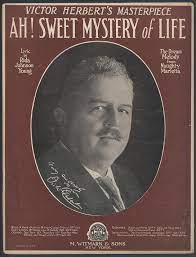


Wikipedia on Ecclesiastes
David Suchet reads Ecclesiastes
Ray Stedman Ecclesiastes Overview
Ray Stedman Commentary
Solomon and the Queen of Sheba
Wisdom: Logos and Sophia
Song of Solomon
Psalm 45
Proverbs
Hudson and Maria Taylor (1858-1870)
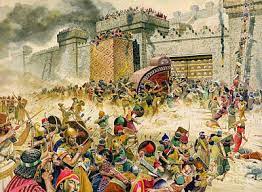
This wisdom I have also seen under the sun,
and it seemed great to me:
There was a little city with few men in it;
and a great king came against it, besieged it,
and built great snares around it.
Now there was found in it a poor wise man,
and he by his wisdom delivered the city.
Yet no one remembered that same poor man.
Then I said:
“Wisdom is better than strength.
Nevertheless the poor man’s wisdom is despised,
And his words are not heard.
Words of the wise, spoken quietly, should be heard
Rather than the shout of a ruler of fools.
Wisdom is better than weapons of war;
But one sinner destroys much good.”
(Ecclesiastes 9:13-18)
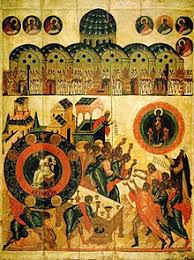
Does not wisdom call,
and does not understanding raise her voice?
On the heights, beside the way,
at the crossroads she takes her stand;
beside the gates in front of the town,
at the entrance of the portals she cries out:
“To you, O people, I call,
and my cry is to all that live.
O simple ones, learn prudence;
acquire intelligence, you who lack it.
Hear, for I will speak noble things,
and from my lips will come what is right;
for my mouth will utter truth;
wickedness is an abomination to my lips.
All the words of my mouth are righteous;
there is nothing twisted or crooked in them.
They are all straight to one who understands
and right to those who find knowledge.
Take my instruction instead of silver,
and knowledge rather than choice gold;
for wisdom is better than jewels,
and all that you may desire cannot compare with her.
I, wisdom, live with prudence,
and I attain knowledge and discretion.
The fear of the Lord is hatred of evil.
Pride and arrogance and the way of evil
and perverted speech I hate.
I have good advice and sound wisdom;
I have insight, I have strength.
By me kings reign,
and rulers decree what is just;
by me rulers rule,
and nobles, all who govern rightly.
I love those who love me,
and those who seek me diligently find me.
Riches and honor are with me,
enduring wealth and prosperity.
My fruit is better than gold, even fine gold,
and my yield than choice silver.
I walk in the way of righteousness,
along the paths of justice,
endowing with wealth those who love me,
and filling their treasuries.
The Lord created me at the beginning of his work,
the first of his acts of long ago.
Ages ago I was set up,
at the first, before the beginning of the earth.
When there were no depths I was brought forth,
when there were no springs abounding with water.
Before the mountains had been shaped,
before the hills, I was brought forth—
when he had not yet made earth and fields,
or the world’s first bits of soil.
When he established the heavens, I was there,
when he drew a circle on the face of the deep,
when he made firm the skies above,
when he established the fountains of the deep,
when he assigned to the sea its limit,
so that the waters might not transgress his command,
when he marked out the foundations of the earth,
then I was beside him, like a master worker;
and I was daily his delight,
rejoicing before him always,
rejoicing in his inhabited world
and delighting in the human race.
“And now, my children, listen to me:
happy are those who keep my ways.
Hear instruction and be wise,
and do not neglect it.
Happy is the one who listens to me,
watching daily at my gates,
waiting beside my doors.
For whoever finds me finds life
and obtains favor from the Lord;
but those who miss me injure themselves;
all who hate me love death.”
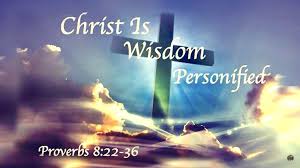
I discovered the Song of Solomon early on in my experience of knowing Jesus, (c1965), and was immediately caught up in the imagery there of prelude and fugue, point and counterpoint, initiating and responding, stimulus and response, and the Tao. I saw right away that the two sexes are complements, not opposites. (Black and white, night and day, right and wrong, plus and minus, are opposites).
Today in our culture, the enigma of only two created sexes in the world, puzzles many. There was not much gender confusion back in the ‘60’s, that came later. Hormones and the “urge to merge” and genetically driven hormones affect us all. Who among us has not suffered some bonding issues early in life? Or a failed marriage? Or been the victim of unrequited love? No wonder vast libraries of books have been written as scholars and researchers attempt to sort this out. The gene pool in each one of us is enormously complex but nurture and environment also matter. God has built much diversity and variety within the two categories. Ought we not consider the lonely life of Jesus: how few love Him back, or serve Him, or think about how much we owe Him. He is still the most ignored, the most hated man who ever lived.
Without help from our Creator we are all hopelessly lost and often deceived. Our inborn faults and flaws run very deep! Our Creator tells it like it is!
“The natural man does not understand the things of God, indeed they are foolishness to him because they must be spiritually discerned.”
I first heard the astounding, liberating truth of Paul’s letters to the Corinthians fifty-seven years ago:
“For the message (logos) of the cross is foolishness to those who are perishing, but to us who are being saved it is the power of God. For it is written:
‘I will destroy the wisdom of the wise,
And bring to nothing the understanding of the prudent.’Where is the wise? Where is the scribe? Where is the disputer of this age? Has not God made foolish the wisdom of this world? For since, in the wisdom of God, the world through wisdom did not know God, it pleased God through the foolishness of the message preached to save those who believe. For Jews request a sign, and Greeks seek after wisdom; but we preach Christ crucified, to the Jews a stumbling block and to the Greeks foolishness, but to those who are called, both Jews and Greeks, Christ the power of God and the wisdom of God. Because the foolishness of God is wiser than men, and the weakness of God is stronger than men.
For you see your calling, brethren, that not many wise according to the flesh, not many mighty, not many noble, are called. But God has chosen the foolish things of the world to put to shame the wise, and God has chosen the weak things of the world to put to shame the things which are mighty; and the base things of the world and the things which are despised God has chosen, and the things which are not, to bring to nothing the things that are, that no flesh should glory in His presence. But of Him you are in Christ Jesus, who became for us wisdom from God—and righteousness and sanctification and redemption— that, as it is written, “He who glories, let him glory in the Lord.” (1 Corinthians 1:18-31)
Truth, namely Biblical revelation from outside the system, is accurate and powerful, cutting through myths, old-wives’ tales and the flawed wisdom of man. Jesus dared to tell us that He was Himself THE truth and the only way to God. Jesus is also called the "wisdom of God" in the New Testament. (Sophia is a feminine noun in Greek, Logos, of course is masculine).
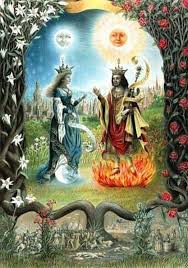

![]()
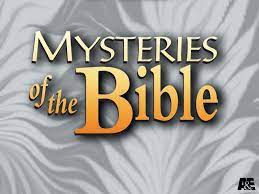
Mysteries in the Bible are not like state secrets. Hidden in ages past, “mysteries” can now be fully understand seeking to know Jesus better. Here is a Mystery Passage:
“Wives, submit to your own husbands, as to the Lord. For the husband is head of the wife, as also Christ is head of the church; and He is the Savior of the body. Therefore, just as the church is subject to Christ, so let the wives be to their own husbands in everything.
Husbands, love your wives, just as Christ also loved the church and gave Himself for her, that He might sanctify and cleanse her with the washing of water by the word, that He might present her to Himself a glorious church, not having spot or wrinkle or any such thing, but that she should be holy and without blemish. So husbands ought to love their own wives as their own bodies; he who loves his wife loves himself. For no one ever hated his own flesh, but nourishes and cherishes it, just as the Lord does the church. For we are members of His body, of His flesh and of His bones. “For this reason a man shall leave his father and mother and be joined to his wife, and the two shall become one flesh.”
This is a great mystery, but I speak concerning Christ and the church. (Ephesians 5:22-32)
One becomes a complete and whole person “in Christ” — not in a “relationship” — whether the apparent “togetherness” is MF, MM, FF --or whatever. Joining a church or becoming more religious won’t do it either! Holding hands also falls short. Vows and solemn oaths at a wedding ceremony are quickly forgotten by many, even before the honeymoon is over for many. The times we live in are seemingly devoid of intimacy at all levels. There is great naiveté about relationships and raw paganism as a kind of cosmic default. We are not a covenant keeping people, either!
![]()
Lambert's Place
Email Lambert Dolphin
Archive for Newsletters
Library Annex (all articles since 2018)
June 22, 2021. February 5, 2023.
